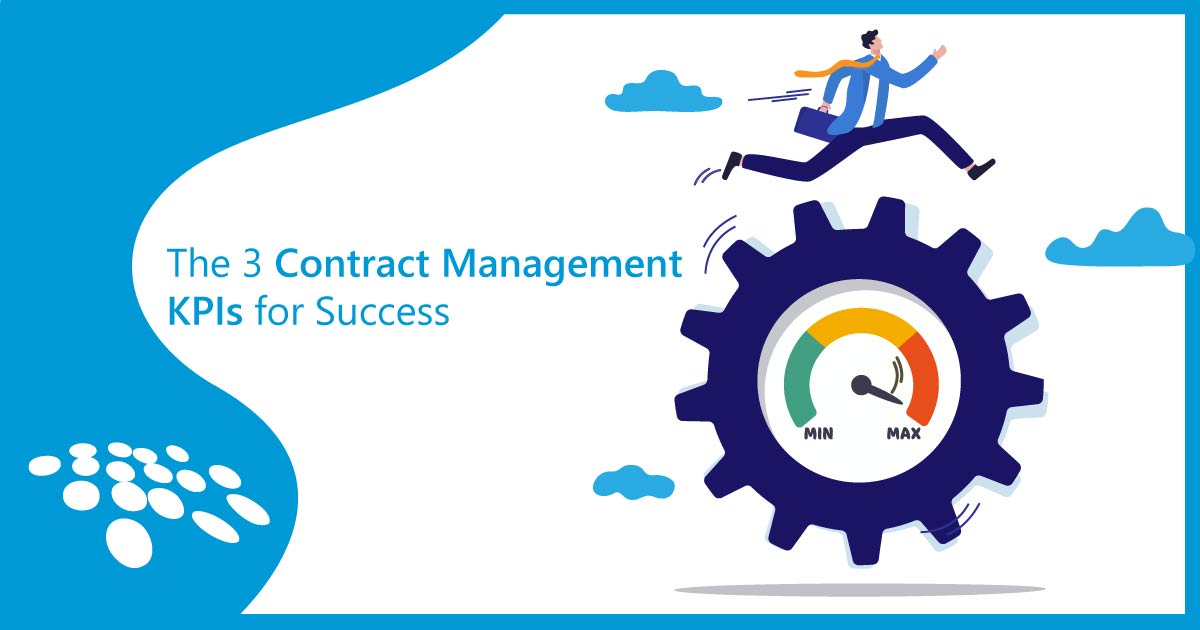 Over the last year, our clients - legal professionals - have expressed their seemingly increased workload for reviewing contract documents, negotiating agreements, and signing contracts. Recently, I was asked: "When do you know it is time to hire a full-time legal professional for contract management and legal review?" Considering the innumerable times I've been asked this question, I resolved to write a thorough and thoughtful response as a blog that aligns with our audience of contract management software users and prospective CLM users as well. Discover 5 steps to determine if you need to hire a full-time legal reviewer or paralegal.
Over the last year, our clients - legal professionals - have expressed their seemingly increased workload for reviewing contract documents, negotiating agreements, and signing contracts. Recently, I was asked: "When do you know it is time to hire a full-time legal professional for contract management and legal review?" Considering the innumerable times I've been asked this question, I resolved to write a thorough and thoughtful response as a blog that aligns with our audience of contract management software users and prospective CLM users as well. Discover 5 steps to determine if you need to hire a full-time legal reviewer or paralegal.
5 Steps in Deciding To Hire a Full-Time Legal Reviewer or Paralegal
In response to this question, I am hopeful that the items below are helpful to legal teams, organizations with increased contract review, law firms, attorneys, general counsel, contract administrators, and other general risk professionals. While this is not legal advice and is not fit for any particular situation or company, the step-by-step guide serves as a general outline and a toolset to help legal teams maintain productivity.
Step #1 - Calculate the Yearly Contract Management Amount
First, try to calculate or determine the number of contracts you manage, review, negotiate, or touch per year. Be sensitive to the "per year" part of this first step.
For example, if your organization's typical contract terms are one-year (or annual term), and your team reviews, negotiations, manages and/or signs (originates) 1,000 new contracts per year, then use 1,000 for the number in this step for the first year. If your company keeps the same trends for five years, then by year five (assuming no cancels or terminations), your company would be managing and reviewing 5,000 contracts per year.
Conversely, if your organization's typical contract term is 5 years and your company interacts with (reviews, negotiates, signs, or originates) 100 new contracts per year - including year 1, then by year five, there will be only 500 contracts managed - considering you only need to review each contract every 5 years. In this instance, the total number of contracts reviewed or managed per year would be 100.
Below is an explanation of the math. However, feel free to skip to step #2 if you feel so inclined.
A = Contracts Per Year (Newly Originated or Newly Reviewed)
T = Years Your Company Has Been Operating at the Same Contract Volume Level for Items in "A"
C = Canceled or Terminated Contracts per Year
D = Number of Contracts Managed or Reviewed per Year
This can be computed, using the following formula: D = (A x T) – C
Moreover, let's say your company is growing at a set rate (or average rate) per year and then your legal contract volume and legal workflow grows at the same average rate per year, you will need to introduce a rate of increase as the percentage of contracts records increase per year. With this understanding, the formula would be revised as follows:
Let R = Average Rate of Increase or Growth per Year
Let T = Time Period in Years
D = (A*(((POWER((1+R),T))-1)/R))
The abovementioned formula will give us the number of contracts (without losing any by way of cancel or termination).
Additionally, to introduce the number of contacts lost per year by way of cancel or termination, introduce L ( the average number of contracts of cancel or termination per year) – as detailed below.
D = (A*(((POWER((1+R),T))-1)/R))-(T*L)
Should your legal department, team, or firm handles 1,000 net new contracts a year and ten of the contracts are canceled or terminated (lost) and your number of contract grows at an average annual rate of 20% per year, in five years you will be managing approximately 6,448 contracts.
Step #2 – Calculate Yearly Hours of Contract Management
Discover how many hours per year it takes a staff member to review each individual contract. Contract Management tasks that consume hours each year include:
- Reading Contracts
- Internal & External Redlining
- Negotiating
- Finalizing Approvals
- Gathering eSignatures
- Implementing Contract Abstraction Within a Leading CLM Software System or Manual Contract Repository
- Reviewing Contract Records Each Year
- Anticipating Contract Renewals
If it takes one hour per contract to complete all the abovementioned tasks and your organization only contains 1,000 contracts, then it would take approximately 1,000 working hours per year (assuming you did not lose any contracts to termination or cancelation).
Step #3 – Calculate the Number of Contract Management Resource Hours Per Year
Calculate the number of working hours per staff member on your legal review or legal operations team. If one staff member works 35 productive hours a week (7 hours per day within a 5-day work week), this yields a gross amount of 1,820 hours per year.
When subtracting 10 vacation days, 5 sick days, days, and 10 holidays, this yields 25 non-working days which equates to 175 hours (25 days multiplied by 7 hours per day). When subtracting 175 hours from the gross amount of 1,820 hours per year, it yields 1,645 hours per year.
Considering that all those hours will not be solely dedicated to contract review and contract management, 20% can be subtracted from the 1,645 hours per year to incur time for lunches, meetings, and other non-contract review tasks. You can compute this as follows.
1,645 hours (.80) = 1,316 Net Hours of Dedicated Legal Contract Review Time
Step #4 – Anticipate Contract Amount Growth and Scale
So, what is all this E=MC2? Where does this leave you? I am just as lost as you. Now, it's time to break this down. The resource above can handle the 1,000 contracts for the first year, but by the second year, the legal resource will be stressed and pressured to review all of the contracts that have grown to an amount of roughly 2,180 – which will require more than the 1,316 net hours of dedicated legal contract review time, all else being equal.
Step #5 – Leverage Quick Computation for Legal Operations Forecasting
Here is another way. If you have 1,000 contracts that take 1 hour per year, your legal team will need at least a part-time contract or legal reviewer to review and administer the 1,000 contracts records. If your contracts take 2 hours to review and manage per year and you have 1,000 contract records, you will need at least one full-time resource.
Concluding Legal Operations Optimization Recommendations
- Estimate the number of hours it takes to review your contracts.
- Implement a robust contract lifecycle management system, such as CobbleStone Contract Insight®, to know the exact number of contracts your team must review per year.
- Leverage simple math to plan your workload and hiring goals.
- Automate contract management wherever possible.
Recommended Reading To Automate Contract Management
- 5 Ways Contract AI Can Automate Contract Lifecycle Management in 2022
- IntelliSign® eSignatures Streamline Remote Contract Collaboration
- Optimize Contract Creation Management 3 Steps
- How to Redline Contract Documents Better With Contract Software
- 6 Reasons Why Contract Management Is Necessary
Streamline Legal Operations With CobbleStone Contract Insight
Streamlined legal operations begin and end with CobbleStone Contract Insight. Don't waste any more time losing contract value and confronting contract management bottlenecks. See industry-leading contract lifecycle management software in action by booking your free demo with a CobbleStone Contract Insight expert.
CobbleStone's trusted, award-winning, leading contract management software streamlines the contract management process with optimal governance, reduced friction, and high flexibility from contract requests to renewals. CobbleStone has been a leader in CLM software for over twenty years and is trusted by thousands of contract managers. CobbleStone's user-friendly, robust, and scalable solution seamlessly connects with external applications, including MS Word and MS Outlook, and offers VISDOM® AI with machine learning for natural language processing and risk management. Moreover. CobbleStone's IntelliSign® eSignatures can make one-off and bulk electronic signing a breeze. It's no wonder why Forrester names CobbleStone a Leader in CLM software!
To stay up to date on best practices, industry news, and CobbleStone Software updates, be sure to subscribe to our blog and YouTube Channel.































